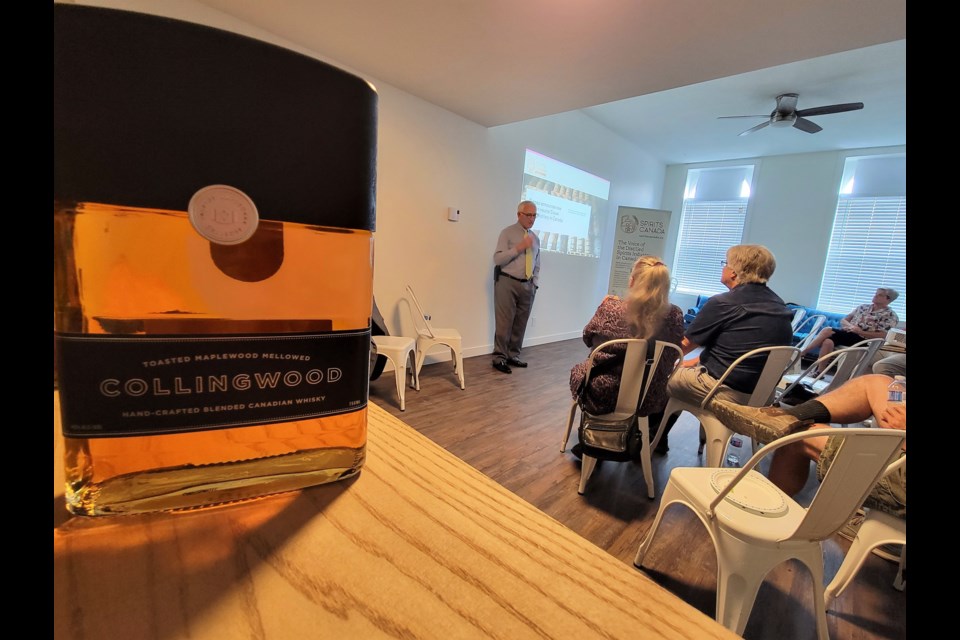COLLINGWOOD — If you’d like to have the option to pick up Collingwood whisky while doing your regular weekly grocery shop, you’re not alone.
Spirits Canada chief executive officer Jan Westcott stopped by the Collingwood Foundry on Thursday afternoon to meet with local farmers and stakeholders to talk about the ongoing exclusion of spirits from Ontario grocery stores.
“We keep saying to the government that they need to do something. We’ve been selling beer and wine at the grocery store for almost six years now and it’s had no discernible impact on the LCBO,” Westcott told attendees.
In 2015, the province, led by then-premier Kathleen Wynne, first expanded beer and wine sales to Ontario grocery stores. Eight years later, spirits have not been added to grocery store shelves, a move Westcott says is behind the times.
“Everything the grocers are selling comes from the LCBO. They take their regular mark-ups. The same would happen with spirits,” he said.
For him, the issue can be distilled into a simple question.
“Why is it that beer from Mexico or Belgium or wine from Australia or France gets better access to Ontario consumers than the whisky made in Collingwood, by Ontario workers, made from grain grown by Ontario farmers?” he asked.
Responding to the presumption spirits are more dangerous than other forms of alcohol when it comes to overconsumption, Westcott said whether a person drinks three beers or three cocktails, it’s still unsafe to drive.
“There are these old myths about our products. It’s all nonsense. The world is changing and we need to recognize that,” he said.
“Consumers want the choice.”
Keith Currie, a Collingwood-area farmer who also serves as president of the Canadian Federation of Agriculture, attended Thursday’s session and noted the importance of the issue to rural farmers who grow corn and grain and are key suppliers to the spirit industry.
“There’s an economic development piece to this. It’s very important to the whole value chain,” said Currie. “It’s a bit of a head-scratcher, why we can’t get (spirits) into places where beer and wine are sold. If the consumers don’t want it, they won’t buy it. Let’s find out.”
John Taylor, owner of Collwest Grain Ltd., also attended Thursday’s session. His business supplies corn and rye to the Collingwood distillery.
“It’s an important market for our company and our local farm community,” said Taylor. “Maintaining the Ontario distillery industry is important for agriculture.”
During his presentation, Westcott said Spirits Canada is visiting rural municipalities to raise awareness and put pressure on provincial representatives.
“We need to get the message out. Phone your local MPP,” he said.



